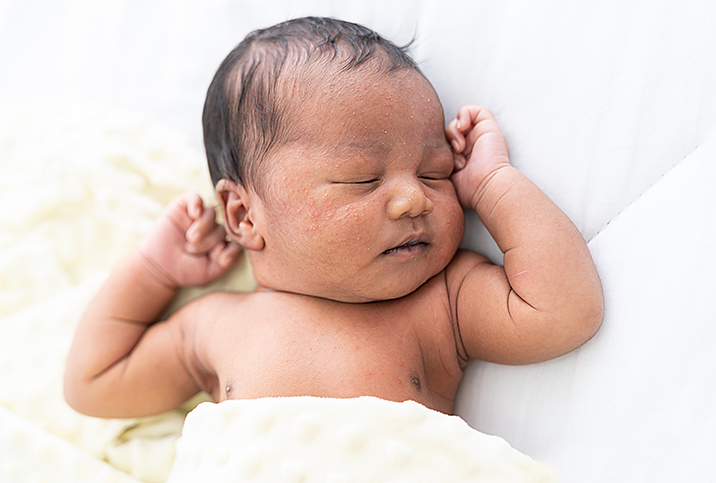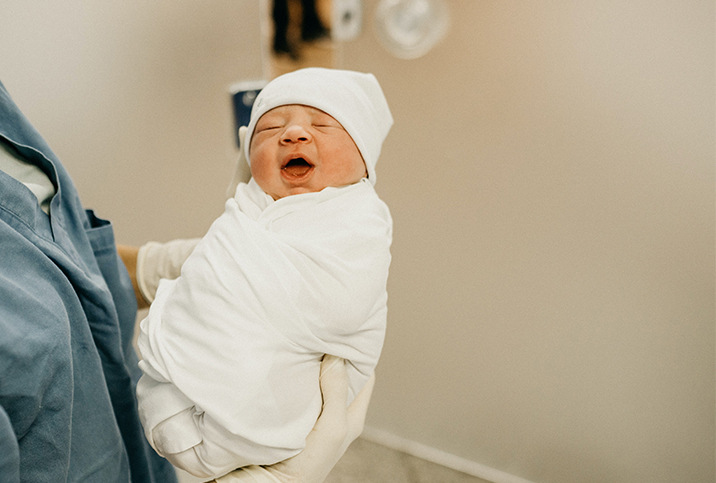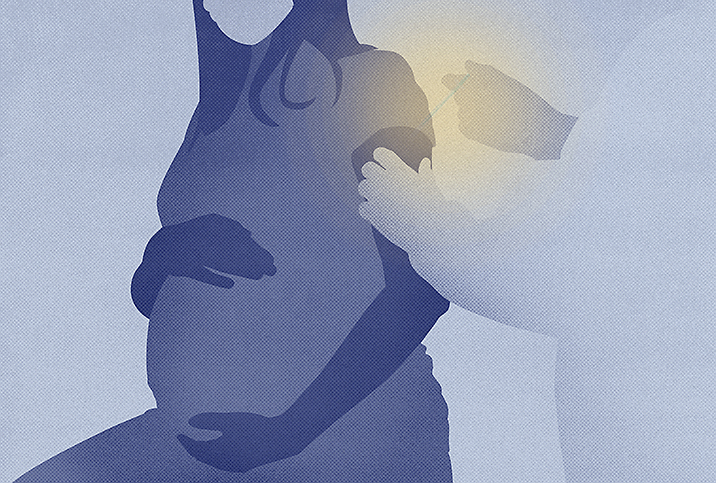How Antibodies Are Passed From Mother to Baby

When babies are first born, their immune system is not fully developed yet, which leaves them susceptible to illnesses. Antibodies from their mother help provide the protection newborns need in the outside world. The immunity is temporary, but it lasts until a baby is old enough to receive vaccinations.
"Antibodies are proteins that are constantly being made and broken down in the body," said Leann Poston, M.D., MBA, M.Ed., from Invigor Medical in Kennewick, Washington. "Since the baby is not making the antibodies, the ones they receive from their mother break down in a matter of weeks to months. As a result, antibody levels are highest right after birth and decline over the next six to 12 months. They are broken down at different rates depending on the child."
There are various ways antibodies are passed from mother to baby. While in utero, a baby receives antibodies via the placenta. After the baby is born, they can get antibodies from drinking colostrum (the golden liquid that precedes breast milk) and from breast milk itself.
Antibody protection via the placenta
Placenta-received antibodies occur in the third trimester of pregnancy to help prepare the baby for birth. These are referred to as "passive antibodies" because the baby receives them instead of the antibodies being produced by the baby's own immune system.
There is a direct correlation between what the parents are immune to and the antibodies that are produced and passed to the child. Poston explained that both parents are responsible for the quality of immune cells, as these are determined by genetics.
The antibodies that pass through the placenta move through the bloodstream to protect the baby.
The immunity from the parents can come both from illnesses they've recovered from and antibodies created by a vaccine response. "Many people have antibodies to common viral and bacterial infections, such as influenza, respiratory syncytial virus, tetanus, pertussis (whooping cough), measles and chickenpox," Poston said.
The antibodies that pass through the placenta are Immunoglobulin G (IgG) antibodies, and they move through the bloodstream to protect the baby. Each lgG antibody has a specific job because they all fight a different type of infection.
All types of antibodies are transferred in the same way, regardless of the type of infection. A recent study found that SARS-CoV-2 antibodies are transferred via the placenta in 87 percent of those who had recovered from COVID-19.
The role of colostrum and breast milk
After birth, other types of antibodies like Immunoglobulin A (IgA) and Immunoglobulin M (IgM), as well as IgG are passed to the baby through colostrum and breast milk.
Colostrum is the golden liquid produced by the breasts before milk starts to come in, and it helps to prepare the newborn's gut by delivering beneficial bacteria.
"It also aids the gut lining to grow in preparation for the next phase of human milk the baby will receive while protecting germs from passing through the gut lining," said Sheila Janakos, a lactation consultant for Healthy Horizons, with locations around the San Francisco Bay area. "It contains more antibodies than mature milk and is a newborn's first protection from illnesses and allergies."
If recommended by a health professional, colostrum can be hand expressed from 36 weeks of pregnancy onward and stored in the refrigerator or freezer. In the first few days after birth, the baby can be fed colostrum either through regular breastfeeding or via a spoon or syringe. Only a small quantity of this rich liquid is needed for the baby to receive the benefits.
'[Colostrum] contains more antibodies than mature milk and is a newborn's first protection from illnesses and allergies.'
The difference between colostrum and breast milk is that "colostrum contains a higher concentration of antibodies and proteins than mature milk, while mature milk has more calories, higher fat and milk sugars," Janakos said.
Babies do start to make their own antibodies shortly after birth, but these antibodies are not at high enough levels to give them adequate protection yet. Breast milk helps bring these levels higher. Babies and children will always get illnesses, but antibodies from breast milk help fight them off more effectively.
The importance of vaccination
Once the high levels of maternal antibodies start to wear off, doctors recommend vaccination so babies aren't left unprotected. Scientists have created the infant inoculation schedule to advise parents on when to schedule each vaccine.
"Newborns should get the first dose of Hepatitis B [vaccine] at birth, with the second dose at 1 to 2 months," Poston said. "At 2, 4 and 6 months, babies are vaccinated against rotavirus, diphtheria, tetanus, pertussis, Hemophilus influenza type B, pneumococcus and polio."
A study found that measles is a risk to babies if adults in their lives have not been vaccinated. If the adults are vaccinated, the herd effect protects babies from infection prior to being able to generate these antibodies for themselves.
Antibodies passed to babies both before and after birth help keep them safe in their first year of life. A combination of the placenta, colostrum, breast milk and routine vaccinations protects babies so they can thrive while staying protected from serious illnesses.


















